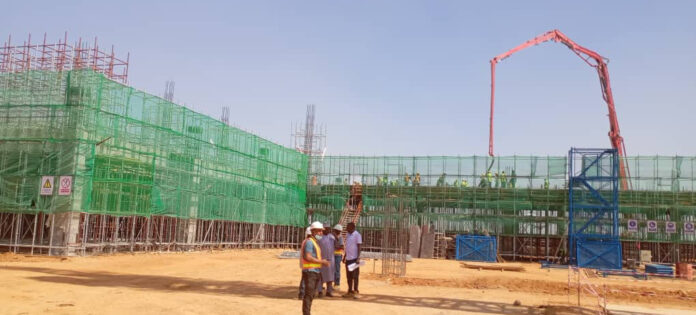Ever since I was privileged to cover and report on two breakthroughs during boring the 37.9-kilometre English Channel Tunnel between Folstone in England and Calais in France for the BBC Hausa Section, I became fascinated by railway projecta. I track such projects in Nigeria and elsewhere in the world.
It is in the context of my interest in railway projects that I was delighted when President Bola Ahmed Tinubu reaffirming his administration’s willingness to completing the rehabilitation of the Eastern Rail Line connecting Port Harcourt to Maiduguri and all ongoing ralway projects financed by the Federal government.
President Tinubu’s reassurance came on the heels of of the commissioning of the rehabilitated section of the Port Harcourt-Maiduguri line.
Engineer Ayo Dada, who supervised the USD3.2 billion 63-kilometre project for the Federal Ministry of Transportation said passenger movements by trains between Rivers and Abia states are now regular, with all the advantages therein.
Mr. Dada recalled that the rehabilitation of the Port Harcourt-Aba section was part of the Port Harcourt-Maiduguri Eastern Narrow Guage restoration project initiated by the APC-led administration of past President Muhammadu Buhari.
It is worthy to remember that the Muhammadu Buhari-led administration has implemented aspects of the Railway Modernisation and Expansion Plan, thus putting the Plan in an upswing motion for the benefit of Nigerians.
The completion of the 186-kilometre Abuja-Kaduna rail line, a legacy of the administration of President Goodluck Jonathan, was the first to come to fruition. It provided opportunity for countless Nigerians to have their first ever trips by train.
Another railway project that was completed by the Buhari administration was inherited from the government of military President Ibrahim Babangida. It is the 346-Kilometre Ajaoukuta-Warri line. A railway village with many facilities was equally completed at Agbor, Delta state.
The first APC-led Federal government also successfully completed the Abuja Light Rail project in 2018. Trains started running between the Nnamdi Azikiwe International Airport to the Metro station in the Abuja Central Area. I had a ride on it twice before it was put in abeyance.
The Balewa administration in the First Republic started and completed the extension of the railway to Maiduguri speedily. The Buhari administration started and completed the 157-kilometre Lagos-Ibadan standard gauge line within four years. The second phase of the 1,315-kilometre Nigeria Railway Expansion and Modernisation Plan envisages linking Lagos to Abuja and then Kano, through Minna and Kaduna.
History was made in implementing the Plan when construction began on the Kaduna-Kano Standard Gauge Rail Line in July 2021. So far track-laying along the Makarfi-Kano segment has been completed and attention has shifted to the Makarfi-Kaduna portion. With the recent approval of USD254.7 million by the China Development Bank for it, one can safely think that the project could be completed in 2027.
The ongoing USD1.8 billion Kano-Maradi line, with a branch to Dutse, the capital of Jigawa state, is yet another portion of the Plan.
An entry on the Internet by TEAM, the project engineering consultants says, “The Kano-Dambatta-Kazaure-Daura-Mashi-Katsina-Jibiya-Maradi railway line has an approximate length of 283.750 km; it crosses and/or passes by all the most important cities and villages, which are served by 15 stations distributed along the route.”
It is hoped that the Kaduna-Kano and Kano-Maradi and the branch to Dutse in Jigawa state projects could be completed by 2027.
Given the importance of railway transportation and the need for its sustainability, a domestic industry for manufacturing railway maintenance equipment is desirable. While the Federal University of Transportation in Daura produces the manpower for the railways, the industry will supply the technical equipment to keep the railway network serviceable.
States in the country intent on joining the governments of Lagos and Rivers states in initiating intra-city railway projects for their capitals should do so under their own steam. The Federal Government should not fund such projects and concentrate on the nationwide Railway Expansion and Modernisation Plan.
Salisu Na’inna wrote from Dambatta




